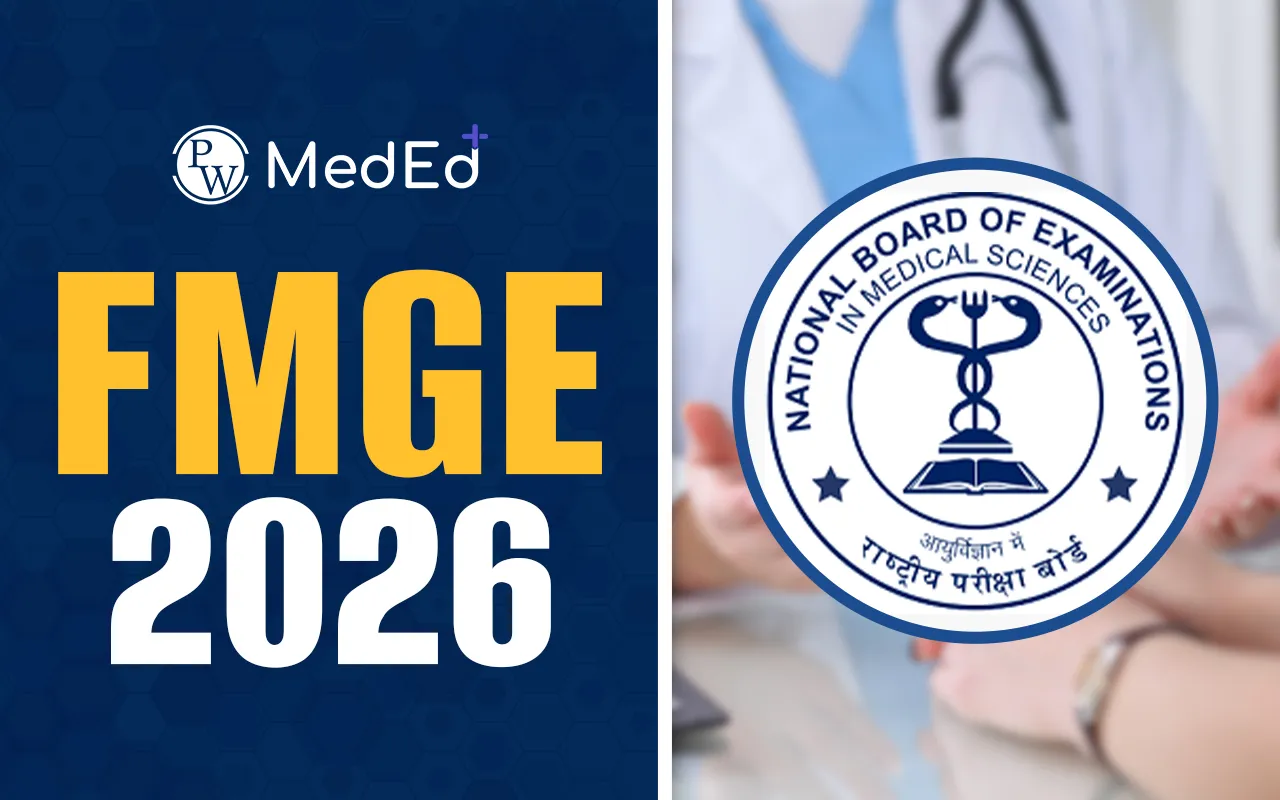
Biochemistry is an important subject in the MBBS course. Biochemistry is asked in the MBBS First Prof, NEET PG, INI CET, and FMGE exams. Students have to study this subject in their first year of the MBBS course. Biochemistry is taught in the Pre-clinical phase of medicine and students must understand this subject well to pass their term exams with good scores.
Biomolecules, Enzymes, and Molecular Biology related to living beings form part of Medical Biochemistry. Read on for a brief introduction to Biochemistry for the MBBS course.
Biochemistry Introduction
Biochemistry as a branch of medical science focuses on chemical processes and substances within living organisms. Biochemistry is a vast field of science and medical biochemistry focuses on applying biochemical principles to the clinical field. Students learn about the structure, composition, and interrelationship of substances in the human body and the ways to control them.
Biochemistry combines ‘biology’ and ‘chemistry’ and is a relatively young science. Students must have heard about metabolism which includes the degradation of substances to gain energy and the buildup of complex molecules for life processes. Biochemistry dwells in chemical changes like this and studies their relation and interrelation to other microorganisms or organic substances like catalysts.
The field of biochemistry investigates the chemical reactions and changes related to disease, drug action, and various aspects of medicine.
Biochemistry History
Unlike Anatomy or Physiology, Biochemistry is a relatively younger field of study. Its origin may be traced back to ancient Greek times but its emergence as a specific scientific discipline could be found around the 19th century. The evolution of biochemistry focused on placing biological phenomena on the firm chemical foundations.
For example, the biological phenomenon of Photosynthesis grabbed the attention of chemists in the late 18th century exploring it as a reverse of the respiration process. In 1833, renowned chemist Anselme Payen discovered the first enzyme ‘diastase’, and in 1897 Eduard Buchner demonstrated the complex biochemical process of alcoholic fermentation in cell-free extracts.
These two landmark events are credited with the recognition of biochemistry as a distinct field. The evolution of biochemistry as a field of medicine was gradual with several landmark events like the revelation of the significance of DNA as genetic material in 1944.
Over time there have been significant events contributing to medical biochemistry such as the first chemical synthesis of protein leading to it becoming an integral part of studying medicine.
Areas of Study in Biochemistry
Biochemistry studies life at the molecular level which includes understanding interrelated chemical changes that occur within the cell. The process of cell growth, reproduction, and heredity are interest areas of biochemists. Some of the major areas of biochemistry are as follows :
Chemical composition of living matter: Every cell contains a large number of organic compounds and elements like hydrogen, nitrogen, phosphorus, etc. which are essential to understanding living beings functioning. Nutrition : The biochemistry field deals with the quantity and quality of organic matter required to satisfy the caloric or energy requirements of human beings. Nutritional requirements like vitamins and minerals are important to know for physicians. Digestion : Food that we eat go through various process in the body where large molecules are hydrolyzed and broken down for energy and other requirements. For example, proteins are converted to mixtures of amino acids for utilization by the body. Evolution and origin of life: Like other fields, biochemistry is also interested in understanding the chemical mechanisms involved in the evolution of life such as the transmission of hereditary characteristics. Metabolism and other areas : As a field biochemistry dig into the chemical process of metabolism, the role of hormones, various component of blood and their functions, and genetic studies.Biochemistry and Anatomy
Anatomy and Biochemistry are two different yet important fields in medicine and help to develop a clear understanding of the human body's functioning. Both of these subjects are taught in the MBBS first year.
- Studying anatomy and biochemistry together develops a comprehensive understanding of the human body which is essential for medical undergraduates.
- These two subjects are important pillars in medicine due to their emphasis on the structure and inherent mechanisms of living things.
- The basic difference between anatomy and biochemistry is that while anatomy is about the geography of the body, biochemistry digs deeper into the chemistry of living beings.
- These subjects are fundamental to the study of medicine and therefore are taught in the Pre-clinical phase of MBBS.
Biochemistry and Anatomy Syllabus
Students must know the syllabus of anatomy and Biochemistry as it forms an important part of MBBS professional exams and top entrance exams like FMGE, NEET PG, and INI CET. The Anatomy and Biochemistry syllabus is detailed by medical universities to first-year students. The syllabus of anatomy and biochemistry is given below for students reference:
Biochemistry - This subject covers topics like molecular biology and enzymes. Major topics of biochemistry are listed below:
- Molecular Biology
- Biological cells
- Hormones
- Metabolic pathways
- Enzymes
- Cancer and cancer makers
- Biomolecules
- Food assimilation and nutrition.
Anatomy Syllabus - The syllabus of anatomy covers the following major topics:
- Gross Anatomy
- Microanatomy
- Embryology and Genetics
- Neuroanatomy
Biochemistry Importance in MBBS
Biochemistry is one of the most essential subjects for medical students pursuing an MBBS degree. The subject set the foundation for understanding the cellular and molecular basis of physiological processes in living beings and disease mechanisms. The field of biochemistry has applications in the development of drugs for the treatment of various diseases.
MBBS students need to study this subject for the following reasons:
- Understanding the chemical components : Students need to study the role played by major chemical compounds found in the human body. Biochemistry provides knowledge of the functioning of proteins, carbohydrates, nucleic acids, and other compounds for diagnosing, testing, and preventing different diseases.
- Understanding of metabolism: Students need to know how metabolism works in the human body which is crucial to understanding the building block of the life process. Since the basic survival of human beings is energy, students must learn chemical reactions that convert food into energy.
- Insights into molecular and chemical processes: Biochemistry subjects provide valuable knowledge on molecular and chemical processes that govern our lives. As a trained physician this knowledge will be required in the future healthcare profession.
- Important for medical exams : Biochemistry forms a major part of the syllabus of the MBBS First Prof exam and medical entrance exams like NEET PG and INI CET. In some of the exams like NEET PG it carries a significant weightage in question paper.
To conclude, Biochemistry is an important subject for medical students and they must study it in-depth to perform well in academics and beyond.
Explore this subject in more depth at the PW Med Ed app by downloading it from the Google Play Store. Download now and get a 7-day free trial!
| NEET PG Important Links | |
|---|---|
| NEET PG 2024 | NEET PG Syllabus 2024 |
| NEET PG Exam Pattern 2024 | NEET PG Reservation |
Biochemistry FAQs
What is Biochemistry?
Why do medical students need to study Biochemistry?
What are the areas of study in Biochemistry?
Does biochemistry have applications in other fields?








